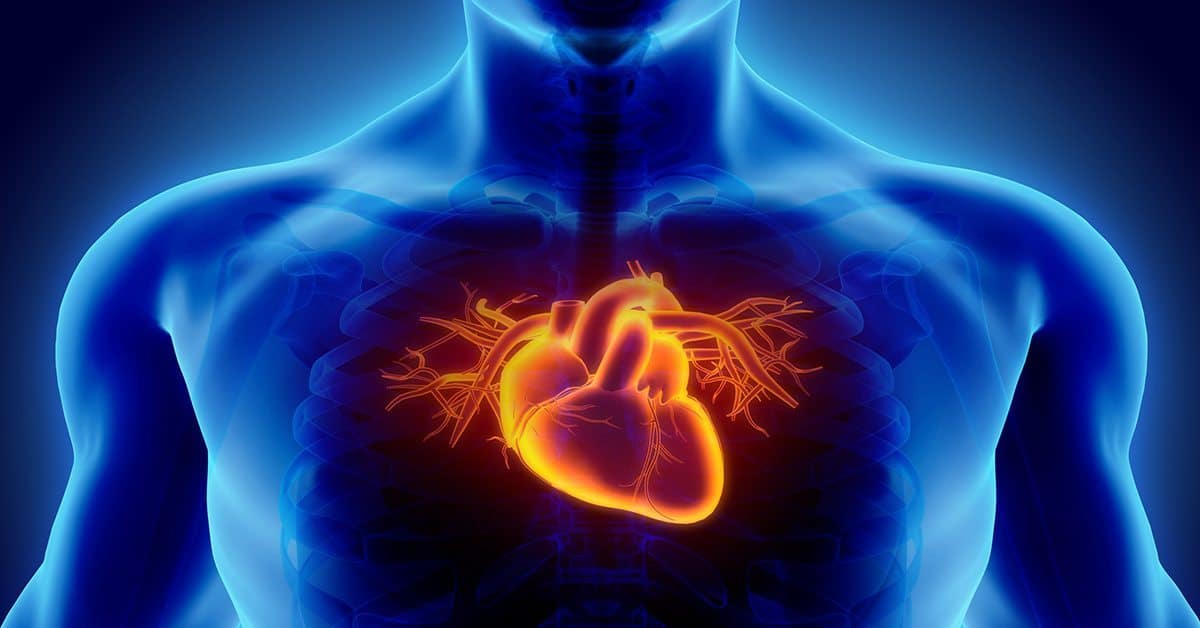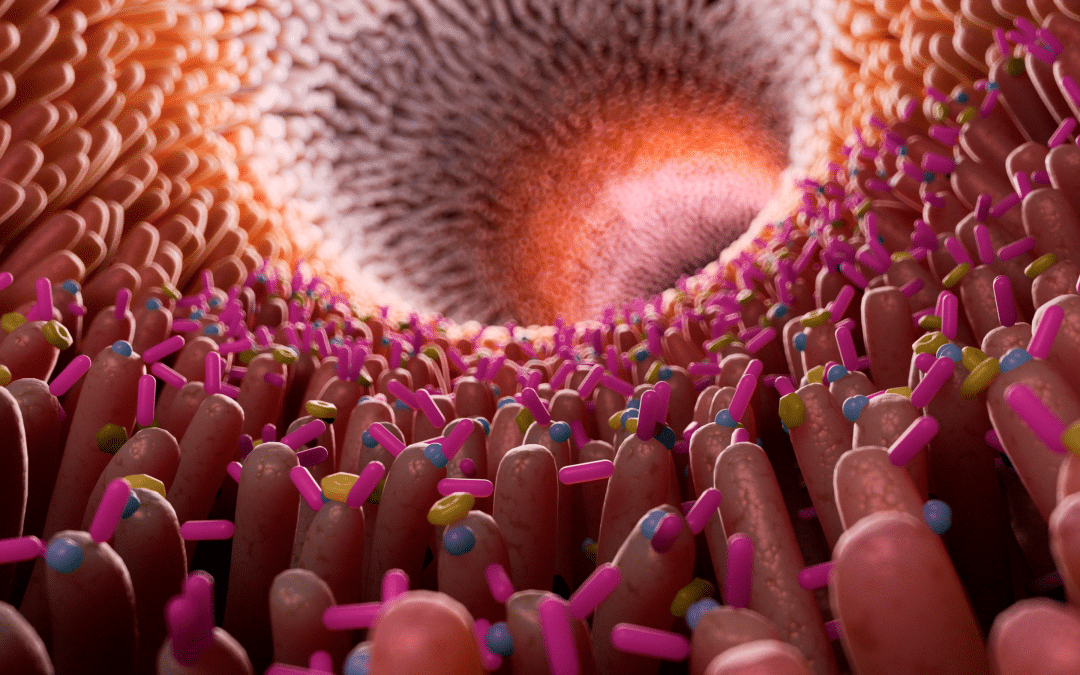When we think about our health, we often overlook a crucial ecosystem residing within our bodies – the gut microbiome. This complex community of trillions of microorganisms, primarily bacteria, inhabits our digestive tract and plays a vital role in various aspects of our well-being. As a scientist, I’ve been fascinated by the intricate relationships between these tiny inhabitants and our overall health.
In recent years, we’ve seen a surge in research exploring the connections between our gut microbiome and heart health. This emerging field has opened up new avenues for understanding and potentially preventing cardiovascular diseases. As we dive deeper into this topic, we’ll uncover the fascinating ways in which the microscopic world within us can have a profound impact on our heart’s well-being.
The Gut-Heart Connection: How Your Microbiome Affects Cardiovascular Health
The link between our gut and heart might not seem obvious at first glance, but it’s a connection that’s garnered significant attention in the scientific community. As we’ve delved deeper into this relationship, we’ve uncovered some remarkable insights. The gut microbiome, it turns out, can influence our cardiovascular health through various pathways [1-3].
One of the primary ways our gut bacteria affect heart health is through their impact on inflammation. Certain beneficial bacteria can help reduce systemic inflammation, which is a known risk factor for heart disease. On the flip side, an imbalance in our gut microbiome can lead to increased inflammation, potentially contributing to cardiovascular problems [1-3].
Another fascinating aspect of the gut-heart connection is the role of gut bacteria in metabolizing certain nutrients [3,4]. For instance, some gut microbes can transform certain compounds in our diet into substances that may either promote or protect against heart disease. This intricate interplay between our diet, gut microbiome, and cardiovascular system highlights the importance of maintaining a healthy balance of gut bacteria.
Key Mechanisms Linking Gut Microbiome to Heart Health
As we explore the gut-heart connection, it’s crucial to understand the specific mechanisms through which our gut microbiome influences cardiovascular health [1-4]. Here are some of the key pathways:
- Production of Short-Chain Fatty Acids (SCFAs): Certain gut bacteria ferment dietary fiber to produce SCFAs, which have been shown to have beneficial effects on blood pressure regulation and cholesterol metabolism.
- Regulation of Bile Acid Metabolism: The gut microbiome plays a role in the metabolism of bile acids, which are important for cholesterol regulation.
- Trimethylamine N-oxide (TMAO) Production: Some gut bacteria can convert certain nutrients into TMAO, a compound associated with increased risk of cardiovascular disease.
- Influence on the Immune System: The gut microbiome helps shape our immune responses, which can impact inflammation levels throughout the body, including in the cardiovascular system.
- Modulation of the Gut Barrier Function: A healthy gut microbiome helps maintain the integrity of the gut lining, preventing the leakage of harmful substances into the bloodstream.
Understanding these mechanisms provides us with valuable insights into how we might be able to manipulate the gut microbiome to promote better heart health.
Beneficial Gut Bacteria for a Healthy Heart
When it comes to heart health, not all gut bacteria are created equal. Certain types of bacteria have been identified as particularly beneficial for cardiovascular wellness [2,3,5]. Some of the bacterial strains that have shown promise in promoting heart health include:
- Lactobacillus rhamnosus: This probiotic strain has been associated with improvements in cholesterol levels and blood pressure.
- Bifidobacterium longum: Studies have suggested that this bacterium may help reduce inflammation and oxidative stress, both of which are risk factors for heart disease.
- Akkermansia muciniphila: This beneficial bacterium has been linked to improved metabolic health, which can indirectly benefit heart health.
It’s important to note that the benefits of these bacteria are often strain-specific, meaning that not all bacteria within a species will have the same effects. Moreover, the complex interactions within the gut microbiome mean that a diverse community of beneficial bacteria is likely more important than any single strain.
The Role of Probiotics in Promoting Cardiovascular Wellness
Given the potential benefits of certain gut bacteria for heart health, it’s natural to wonder about the role of probiotics in promoting cardiovascular wellness. In recent years, we’ve seen a growing body of research exploring the use of probiotics for heart health [5,6]. For instance, some probiotic strains have been found to help:
- Lower blood pressure
- Reduce LDL (“bad”) cholesterol levels
- Increase HDL (“good”) cholesterol levels
- Reduce inflammation markers in the blood
However, it’s important to approach probiotics with a balanced perspective. While the results are encouraging, more research is needed to fully understand the long-term effects and optimal use of probiotics for heart health. Not all probiotic supplements are created equal, and the benefits can vary depending on the specific strains used, dosage, and individual factors.
As a researcher, I always emphasize the importance of consulting with a healthcare professional before starting any new supplement regimen, including probiotics.
Diet and Lifestyle Factors that Support a Heart-Healthy Microbiome
While probiotics can be a useful tool, we shouldn’t overlook the power of diet and lifestyle in shaping our gut microbiome for better heart health. Here are some key dietary and lifestyle factors that can support a heart-healthy microbiome
- Eat Fiber-Rich Foods
- Eat Fermented Foods
- Limit Consumption of Processed Foods
- Get Regular Exercise
- Practice Stress Management
- Get Adequate Sleep
- Avoid Unnecessary Antibiotics
By incorporating these habits into our daily lives, we can create an environment that supports a diverse and healthy gut microbiome, which in turn can contribute to better heart health.
Potential Risks of an Imbalanced Gut Microbiome on Heart Health
While we’ve discussed the potential benefits of a healthy gut microbiome for heart health, it’s equally important to understand the risks associated with an imbalanced microbiome. This state of microbial imbalance, known as dysbiosis, can have far-reaching effects on our cardiovascular system [1-4]. Some of the potential risks of an imbalanced gut microbiome on heart health include:
- Increased Inflammation: Dysbiosis can lead to a leaky gut, allowing harmful substances to enter the bloodstream and trigger systemic inflammation, a risk factor for heart disease.
- Elevated TMAO Levels: An overgrowth of certain bacteria can lead to increased production of TMAO, which has been linked to a higher risk of heart attacks and strokes.
- Altered Cholesterol Metabolism: Some gut bacteria play a role in cholesterol metabolism. An imbalance could potentially lead to unfavorable changes in cholesterol levels.
- Hypertension: Certain types of gut dysbiosis have been associated with increased blood pressure.
- Obesity and Metabolic Syndrome: An imbalanced gut microbiome can influence weight gain and metabolic health, indirectly affecting heart health.
It’s crucial to note that the relationship between gut dysbiosis and heart health is complex and not always straightforward. Many factors, including genetics, diet, and lifestyle, interact with our gut microbiome to influence cardiovascular risk.
Current Research on Gut Microbiome and Cardiovascular Disease Prevention
The field of gut microbiome research in relation to cardiovascular health is rapidly evolving. As scientists, we’re continually uncovering new insights that could potentially revolutionize how we approach heart disease prevention and treatment [1,3,4]. Here are some of the exciting areas of current research:
- Microbiome Profiling: Researchers are working on developing detailed profiles of what constitutes a “heart-healthy” microbiome.
- Probiotic Therapies: Clinical trials are underway to test specific probiotic strains for their effects on various markers of cardiovascular health, including blood pressure and cholesterol levels.
- Prebiotic Fiber Studies: There’s growing interest in understanding how different types of dietary fiber can selectively promote the growth of beneficial gut bacteria for heart health.
- Metabolite Research: Scientists are investigating the various metabolites produced by gut bacteria and their effects on cardiovascular health.
- Gut-Heart Axis Mechanisms: Ongoing studies are delving deeper into the specific pathways through which the gut microbiome influences heart health, including neural, endocrine, and immune system connections.
As we continue to unravel the complexities of the gut-heart connection, we’re moving closer to developing novel strategies for cardiovascular disease prevention that target the gut microbiome. It’s an exciting time in this field, and I’m optimistic about the potential breakthroughs on the horizon.
Final Thoughts
The key takeaway is that heart health isn’t just about what we typically associate with cardiovascular care, it’s also about nurturing the complex ecosystem within our gut. By adopting a holistic approach that considers both traditional heart health strategies and gut microbiome care, we can potentially enhance our overall cardiovascular wellness.
As research in this field continues to evolve, we’re likely to see even more targeted and personalized approaches to using gut microbiome interventions for heart health. It’s an exciting time in cardiovascular research, and I’m optimistic about the potential for new prevention and treatment strategies on the horizon.
If you’re interested in learning more about how you can support your gut health for better heart health, I encourage you to speak with a healthcare professional. They can provide personalized advice based on your individual health status and needs. And remember, while the gut-heart connection is important, it’s just one piece of the puzzle. Continue to follow established guidelines for heart health, including regular exercise, a balanced diet, and routine check-ups with your doctor. Together, we can work towards a future where heart disease is less prevalent, one healthy gut at a time.
Sources
[1] Tang, W. H., Kitai, T., & Hazen, S. L. (2017). Gut Microbiota in Cardiovascular Health and Disease. Circulation research, 120(7), 1183–1196. https://doi.org/10.1161/CIRCRESAHA.117.309715
[2] Masenga, S.K., Hamooya, B., Hangoma, J. et al. (2022). Recent advances in modulation of cardiovascular diseases by the gut microbiota. J Hum Hypertens 36, 952–959. https://doi.org/10.1038/s41371-022-00698-6
[3] Nesci, A., Carnuccio, C., Ruggieri, V., D’Alessandro, A., Di Giorgio, A., Santoro, L., Gasbarrini, A., Santoliquido, A., & Ponziani, F. R. (2023). Gut Microbiota and Cardiovascular Disease: Evidence on the Metabolic and Inflammatory Background of a Complex Relationship. International journal of molecular sciences, 24(10), 9087. https://doi.org/10.3390/ijms24109087
[4] Rahman Md. Mominur , Islam Fahadul , -Or-Rashid Md. Harun , Mamun Abdullah Al , Rahaman Md. Saidur , Islam Md. Mohaimenul , Meem Atkia Farzana Khan, et. al. (2022). The Gut Microbiota (Microbiome) in Cardiovascular Disease and Its Therapeutic Regulation. Frontiers in Cellular and Infection Microbiology, 12, https://www.frontiersin.org/journals/cellular-and-infection-microbiology/articles/10.3389/fcimb.2022.903570
[5] Wu, H., & Chiou, J. (2021). Potential Benefits of Probiotics and Prebiotics for Coronary Heart Disease and Stroke. Nutrients, 13(8), 2878. https://doi.org/10.3390/nu13082878
[6] Thushara, R. M., Gangadaran, S., Solati, Z., & Moghadasian, M. H. (2016). Cardiovascular benefits of probiotics: a review of experimental and clinical studies. Food & function, 7(2), 632–642. https://doi.org/10.1039/c5fo01190f
https://www.hopkinsmedicine.org/health/wellness-and-prevention/can-your-gut-health-affect-your-heart
https://www.broadinstitute.org/news/scientists-link-certain-gut-bacteria-lower-heart-disease-risk
https://www.medicalnewstoday.com/articles/how-and-why-does-gut-health-influence-heart-health
https://www.health.harvard.edu/staying-healthy/healthy-gut-healthy-he






